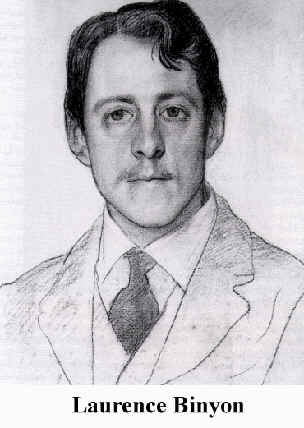"AT THE GOING DOWN OF THE
SUN"
Mankind has been waging war since time began. He
has fought his family, his neighbours, the rival clan or tribe, the folk over
the border and, latterly, across the globe. These old conflicts are now
remembered in piles of stones in quiet fields, crossed swords on maps, dusty
regimental flags hanging from the rafters of churches. For larger conflicts
there are granite crosses pointing skywards in cemeteries across the w orld and
every city, town and village has somewhere an edifice large or small,
commemorating those from the neighbourhood who lost their lives fighting for
their country. There are other memorials, too, blood red poppies worn in the
lapel and the playing of the Last Post on a bugle, pieces of music especially
composed and at the eleventh hour, on the eleventh day, of the eleventh month,
people stand in silence to remember the fallen of the two World wars. Nowadays
in these islands, other conflicts are incorporated in this act, the Korean War,
the Falklands and more recently fighting in Eastern Europe, Afghanistan and
Iraq. This year the eleventh day falls on a Sunday and churches everywhere will
bring this act of remembrance into their service.
orld and
every city, town and village has somewhere an edifice large or small,
commemorating those from the neighbourhood who lost their lives fighting for
their country. There are other memorials, too, blood red poppies worn in the
lapel and the playing of the Last Post on a bugle, pieces of music especially
composed and at the eleventh hour, on the eleventh day, of the eleventh month,
people stand in silence to remember the fallen of the two World wars. Nowadays
in these islands, other conflicts are incorporated in this act, the Korean War,
the Falklands and more recently fighting in Eastern Europe, Afghanistan and
Iraq. This year the eleventh day falls on a Sunday and churches everywhere will
bring this act of remembrance into their service.
Every year someone, somewhere, will read out in
church, at an open air service or at a regimental gathering these words:-
They shall not grow old, as we that are left grow
old:
Age shall not weary them, nor the years condemn.
At the going down of the sun and in the morning
We shall remember them.
These now famous lines are from Laurence Binyonís
poem "To the Fallen" written in September 1914. He could almost be
called a local boy, born in Lancaster in 1869 the son of a clergyman. There is a
blue plaque on the wall in the street where he lived. He was well-educated and
learned and he became a prolific author in several fields. After leaving
university he was employed in the British Museumís Department of Printed Books
and later became the Keeper of the Department of Prints and Drawings. He was an
expert on Oriental art and he wrote the first book in any language on painting
in the Far East. In another sphere, he won the Newdigate prize for poetry and
published several poems under the title The First Four Years. The poems included
the Home front as well as the fighting but on the whole these are forgotten now.
There were other collections of poetry, nine verse plays, literary criticism and
a translation of Danteís Divine Comedy.
In the first World War he served with the Red
Cross and was in the thick of the fighting, seeing for himself the carnage and
horror suffered by soldiers on both sides of the conflict. Afterwards he took up
an academic career, lecturing in Japan in 1929. Between 1933-34 he was the
Norton Professor of Poetry at Harvard University and Byron Professor of Poetry
at the University of Athens in 1940. He died in 1943 during the Second World
War.
He was not a soldier poet but certainly a War
Poet and rightly so! Having written many works of scholarship during his life,
he is remembered today for that single poem and probably for years to come he
will still be remembered every November. It is his own memorial.
Barbara Hothersall
Click
here to read the whole poem
 orld and
every city, town and village has somewhere an edifice large or small,
commemorating those from the neighbourhood who lost their lives fighting for
their country. There are other memorials, too, blood red poppies worn in the
lapel and the playing of the Last Post on a bugle, pieces of music especially
composed and at the eleventh hour, on the eleventh day, of the eleventh month,
people stand in silence to remember the fallen of the two World wars. Nowadays
in these islands, other conflicts are incorporated in this act, the Korean War,
the Falklands and more recently fighting in Eastern Europe, Afghanistan and
Iraq. This year the eleventh day falls on a Sunday and churches everywhere will
bring this act of remembrance into their service.
orld and
every city, town and village has somewhere an edifice large or small,
commemorating those from the neighbourhood who lost their lives fighting for
their country. There are other memorials, too, blood red poppies worn in the
lapel and the playing of the Last Post on a bugle, pieces of music especially
composed and at the eleventh hour, on the eleventh day, of the eleventh month,
people stand in silence to remember the fallen of the two World wars. Nowadays
in these islands, other conflicts are incorporated in this act, the Korean War,
the Falklands and more recently fighting in Eastern Europe, Afghanistan and
Iraq. This year the eleventh day falls on a Sunday and churches everywhere will
bring this act of remembrance into their service.